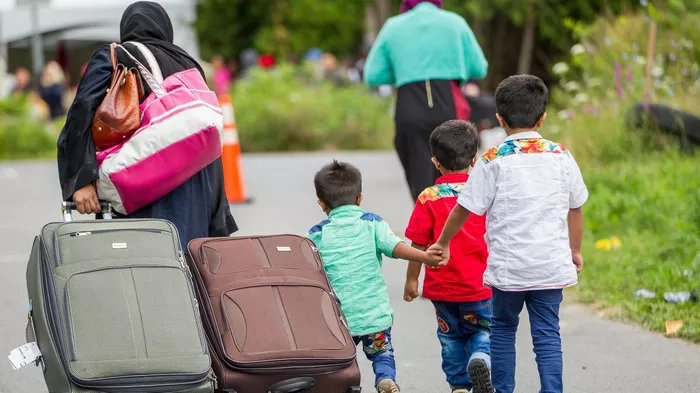Seeking asylum is a fundamental human right recognized internationally. It provides protection for individuals who have fled their home countries due to persecution, violence, or other threats to their safety and well-being. However, not all reasons for seeking asylum are considered valid under international law. Understanding the criteria for asylum is crucial for both asylum seekers and the countries considering their claims.
What Constitutes a Valid Reason for Asylum?
Asylum seekers must demonstrate that they have a well-founded fear of persecution in their home country based on one or more of the following grounds:
1. Persecution Based on Race, Religion, Nationality, Political Opinion, or Membership in a Particular Social Group
Persecution on the basis of race, religion, nationality, political opinion, or membership in a particular social group is one of the most common reasons for seeking asylum. This can include discrimination, harassment, violence, or other forms of harm inflicted by the government or non-state actors.
For example, individuals who belong to religious or ethnic minority groups that are targeted for persecution by the state or by extremist groups may have valid asylum claims. Similarly, political activists or dissidents who face persecution for their beliefs or activities may qualify for asylum.
2. War, Armed Conflict, and Generalized Violence
Individuals fleeing war, armed conflict, or generalized violence in their home countries may also be eligible for asylum. In such cases, the level of violence and the inability of the government to provide protection are key factors in determining the validity of the asylum claim.
For instance, civilians caught in the crossfire of a civil war or conflict between armed groups may fear for their safety and seek asylum in a neighboring country or beyond. Similarly, individuals living in areas plagued by gang violence or organized crime may qualify for asylum if they can demonstrate that the state is unable or unwilling to protect them.
3. Gender-Based Persecution
Gender-based persecution, including but not limited to domestic violence, forced marriage, honor killings, and female genital mutilation, can also be grounds for asylum. Women and members of the LGBTQ+ community who face persecution or discrimination based on their gender or sexual orientation may qualify for asylum protection.
For example, a woman who is fleeing an abusive relationship in a country where domestic violence is not adequately addressed by the authorities may have a valid asylum claim. Similarly, LGBTQ+ individuals who face persecution or violence because of their sexual orientation or gender identity may be eligible for asylum.
4. Torture and Other Forms of Cruel, Inhuman, or Degrading Treatment or Punishment
Asylum may be granted to individuals who fear torture or other forms of cruel, inhuman, or degrading treatment or punishment if returned to their home country. This can include physical torture, psychological abuse, or other forms of mistreatment inflicted by state agents or non-state actors.
For instance, individuals who have been detained and tortured by the authorities for their political beliefs or activities may be eligible for asylum. Similarly, victims of human trafficking or forced labor who fear reprisals if they return to their home countries may qualify for asylum protection.
5. Environmental and Climate-Related Factors
While not traditionally recognized as grounds for asylum, there is growing recognition of the potential for environmental and climate-related factors to force people to flee their homes and seek international protection. This can include natural disasters, environmental degradation, and the impact of climate change on livelihoods and access to resources.
For example, communities displaced by rising sea levels, desertification, or extreme weather events may seek asylum in other countries if they are unable to find safe and sustainable living conditions in their home countries. While the legal framework for recognizing such claims is still evolving, there is increasing acknowledgment of the need to address the humanitarian consequences of environmental displacement.
Challenges and Considerations
While the reasons outlined above represent valid grounds for seeking asylum, the asylum process is complex, and there are numerous challenges and considerations that asylum seekers may face:
1. Credibility and Documentation
Asylum seekers are often required to provide credible and verifiable evidence to support their claims, which can be challenging, especially if they have fled their home countries with little or no documentation. Gathering evidence of persecution or violence can be difficult, particularly in cases where the perpetrators are state actors or powerful non-state entities.
2. Procedural Barriers
Asylum seekers may encounter various procedural barriers throughout the asylum process, including lengthy delays, lack of access to legal representation, and inconsistent decision-making by asylum authorities. These barriers can undermine the fairness and effectiveness of the asylum system, leaving vulnerable individuals in limbo for extended periods.
3. Detention and Detention Conditions
Many countries detain asylum seekers while their claims are being processed, often in overcrowded and unsanitary conditions. Detention can exacerbate the trauma experienced by asylum seekers and limit their access to legal assistance and support services. Ensuring humane treatment and alternatives to detention is essential for upholding the rights and dignity of asylum seekers.
4. Access to Protection and Services
Asylum seekers may face barriers to accessing protection and essential services, including healthcare, education, and housing, particularly in countries with limited resources or hostile attitudes toward refugees and migrants. Ensuring that asylum seekers have access to the support they need to rebuild their lives is crucial for successful integration and long-term well-being.
Conclusion
Seeking asylum is a fundamental human right enshrined in international law, providing protection for individuals who have fled persecution, violence, or other threats to their safety and well-being. Valid reasons for asylum include persecution based on race, religion, nationality, political opinion, or membership in a particular social group, as well as war, armed conflict, gender-based violence, torture, and environmental displacement. However, the asylum process is complex, and asylum seekers may face numerous challenges and barriers along the way. It is essential for countries to uphold their obligations under international law and ensure that asylum seekers receive fair and effective protection and support.


